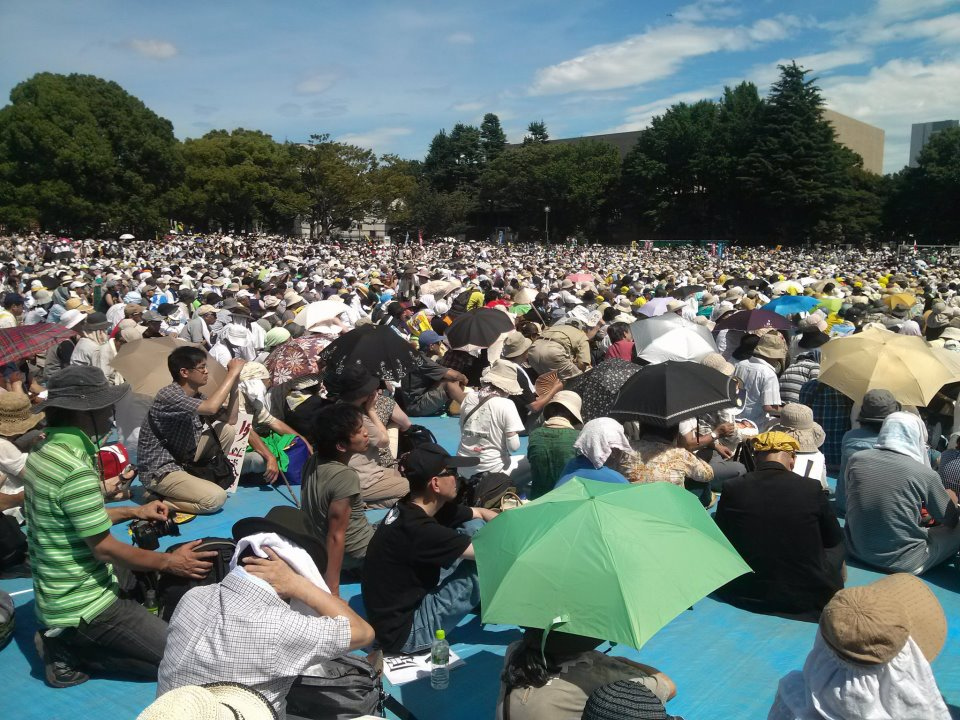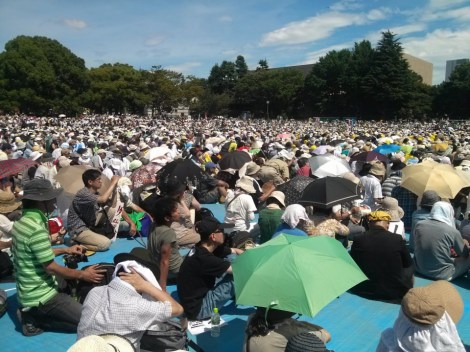Between 75,000 and 175,000 Japanese citizens rallied in Tokyo yesterday to protest the restarting of idled nuclear plants. National Geographic describes the growing movement:
The first rally in March was modest: a few hundred citizens joined against nuclear power, marking the anniversary of the earthquake- and tsunami-triggered Fukushima Daiichi disaster a year earlier. But in recent weeks, since [Prime Minister Yoshihiko] Noda decided to restart two of Japan’s 54 idled nuclear reactors, the protest has swelled into a mass demonstration blocking the streets of Japan’s political center.
Building on their Friday night momentum, protestors on Monday staged their largest rally yet, with tens of thousands of people congregating at Yoyogi Park, and then marching in three groups through the capital.
A month ago, an independent commission placed blame for the Fukushima disaster on human error, noting that it “could and should have been foreseen and prevented.” The reactor that has been restarted is at the Ohi nuclear plant (adjacent to scenic Obama Bay).
Protestors… argue that safety is taking a back seat to economic considerations. The Ohi plant’s safety is based only on provisional standards; promised safety measures — higher sea walls, filters, and a quake-proof building — won’t be ready for many months. To address concerns of communities surrounding the Ohi plant, the evacuation zone in the event of an accident has been expanded to include neighboring prefectures, but there is still no accompanying evacuation plan. Residents worry an accident could contaminate the region’s largest freshwater source, Lake Biwa, and seismologists have warned that authorities failed to take into account active fault lines around Ohi, including one small fault that runs directly below one of the reactors.
Here’s a news report on yesterday’s protest from NHK World, the international arm of the Japan Broadcasting Corporation.




